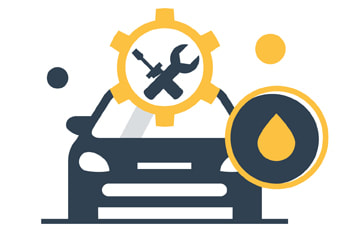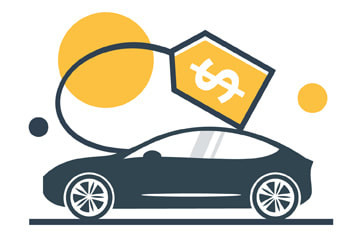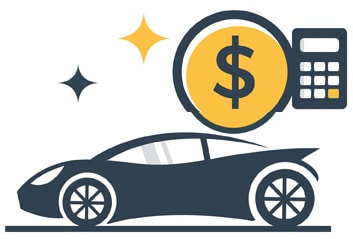MBI (Mechanical Breakdown Insurance) - The Definitive Guide
Mechanical Breakdown Insurance can be an expensive and unnecessary add-on to car finance. Consumer NZ has argued that it may offer the same protection as the Consumer Guarantees Act but at a high cost. Our guide outlines everything you need to know to make an informed decision about whether you need MBI.
Updated 29 February 2024
Summary:
Summary:
- If you pay cash for a car, it's far less likely you'll be offered MBI. We believe MBI is sold as an add-on to car loans.
- The idea is that it protects you from the risk of having to pay for repairs should your car break down, which could otherwise affect your cash flow and ability to make loan repayments.
- However, there are a lot of policy exclusions, meaning claiming on MBI can be difficult. For example, if your car has a cambelt issue, exhaust problem or "light bulb" issue (which could include sensor malfunctions), you won't be covered. There are many more exclusions on top of those.
- MBI isn't cheap - policies can cost around $800 to over $1,000, covering the car for 1-3 years. The amount usually added to a car loan, so you'll be charged interest while you make your standard car repayments.
- We're not fans of MBI, and nor is Consumer NZ. The Australian Securities and Investments Commission (ASIC) has found that add-on insurance offered via car finance gave poor value. Specifically, add-on insurances (which include MBI and GAP insurance) paid out 9 cents for every dollar collected in policy fees.
- There's no New Zealand data on payouts, but we believe the policies may operate in the same or a very similar way to Australia.
- What this means is a lot of the money you pay for an MBI policy is given to car dealers as a commission, with the rest going to the insurer.
- Like the ASIC report concludes, we believe MBI is a good deal for those selling it, but not so much the person buying it (i.e. car owner).
- Please be very careful before buying any MBI policy - Car Loan Expert's MBI review has more information if you're interested in comparing policies and learning more.
How does Mechanical Breakdown Insurance work?
As the name suggests, Mechanical Breakdown Insurance covers the costs of repairing your car that arises from a mechanical breakdown. The policy provides a guarantee for automotive machinery and electronic faults. As car insurance doesn't cover such faults, MBI is designed to protect drivers from unpredictable (and often unaffordable) mechanical repair bills.
To help explain Mechanical Breakdown Insurance, our guide covers:
Know This: Do I need Mechanical Breakdown Insurance if I have fully comprehensive car insurance?
To help explain Mechanical Breakdown Insurance, our guide covers:
- Why does Mechanical Breakdown Insurance exist?
- How much does Mechanical Breakdown Insurance cost?
- Pros, Cons and Alternatives
- Who offers Mechanical Breakdown Insurance?
- Frequently Asked Questions
- Mechanical Breakdown Insurance - Our View and Conclusion
Know This: Do I need Mechanical Breakdown Insurance if I have fully comprehensive car insurance?
- Car insurance pays out for damage or total loss - it does not pay out for the costs of repairing your car if it breaks down.
- Mechanical Breakdown Insurance is designed to protect you from qualifying car repair costs. The problem is many car problems aren't covered, so you'll need to pay for your repairs.
- Mechanical Breakdown Insurance and typical comprehensive car insurance have no crossover and address very different risks.
- You may also be offered Guaranteed Asset Protection Insurance (GAP) when you finance a car - our guide explains what this is in detail.
Why does Mechanical Breakdown Insurance exist?
- Car repairs are expensive. People who buy cars with finance often have significant loan repayments. If the car breaks down, fixing it can mean immediate financial hardship.
- Mechanical Breakdown Insurance is designed to reduce this risk by paying for repairs should your car break down. It means you'll be protected from expensive mechanic bills and can better manage your cashflows.
- Standard policies cover breakdowns caused by faults with a car's engine, fuel system, turbo unit, automatic/manual transmission, electrical, clutch, transfer box, overdrive, prop shaft, suspension, front wheel drive assembly, air conditioning systems, cooling systems and steering etc. The more comprehensive the policy, the more conditions that are covered.
- However, Mechanical Breakdown Insurance is not without risks - many 'breakdowns' are ineligible for cover. Australian regulators believe consumers don't get value for money when taking on add-on insurances, including MBI.
Car Warranties vs Mechanical Breakdown Insurance - Understanding the Difference
MBI, for the most part, is only purchased by a small number of drivers. When you buy a car from a dealer, there is no obligation to buy mechanical breakdown insurance. There may be sales pressure, but it's not compulsory to have even if you get a loan to buy the car. If your car isn't of acceptable quality, the Consumer Guarantees Act (CGA) requires the dealer to sort it out.
Buying a new or used vehicle from a dealer (either online, at a car yard or at an auction) gives you more consumer rights than if you buy a car privately. All car dealers must:
If you buy a car from a dealer, we suggest reading this government guide that outlines your rights and ways of complaining.
Buying a new or used vehicle from a dealer (either online, at a car yard or at an auction) gives you more consumer rights than if you buy a car privately. All car dealers must:
- Comply with the Consumer Guarantees Act (CGA)
- Comply with the Fair Trading Act (FTA) – not mislead you and be clear they are a dealer
- Be registered
- Give you accurate information in the Consumer Information Notice (CIN) for each used vehicle – the vehicle's history, price, condition, odometer reading and any money owing.
If you buy a car from a dealer, we suggest reading this government guide that outlines your rights and ways of complaining.
What's excluded from Mechanical Breakdown Insurance policies?
In a nutshell, a lot of car faults and problems are excluded from standard MBI policies. Unfortunately, very few people read the fine print before getting a policy and find out the policy limits the hard way when their car breaks down. This Stuff.co.nz article outlines the limitations of a policy and outlines cases where policies haven't covered breakdowns.
Generally, Mechanical Breakdown Insurance excludes:
Exclusions - Our View:
Generally, Mechanical Breakdown Insurance excludes:
- All pre-existing conditions (this exclusion is contentious as 'pre-existing' may be unknown to you)
- Repairs related to a manufacturer’s recall or a design fault
- All repairs that relate to chassis, panel, paintwork, glass, upholstery and anything cosmetic
- All repairs that relate to a battery, exhaust systems, catalytic converters, tyres, entertainment system, heated sear elements, light bulbs, communication systems, fuel tanks, keys and remotes
- Cambelt failure
- Any costs such as servicing, maintenance, adjustment or tuning
- Rust, contamination, loss or damage and anything a comprehensive car insurance policy would cover (i.e. accident damage, fire damage, water damage, theft, full loss etc.)
- Using the wrong fuel and oil
- Repairs your Mechanical Breakdown Insurer doesn't approve
Exclusions - Our View:
- There are so many exclusions in a typical policy isn't hard to know what would be covered should your car break down.
- We know car dealers and car lenders sell MBI policies - Consumer reported that over 2 in 3 people were offered MBI when buying a car.
- Consumer Protection law (outlined in this government website) specifically protects anyone who buys a car from a dealer; it must be "fit for purpose", which means if it has pre-existing faults, you'll need to be told about them. If you're not, you can ask for a refund or repair.
- The reality is anything to do with cars is problematic, and the driver often has less power and experience to push back with confidence. That being said, we don't believe buying MBI is a foolproof solution.
- The profits by selling MBI are, we assume, high (as reported by Australian investigations), but there's no market data around claim success in New Zealand.
- As such, we suggest being wary about policies in general - they can cost up to $1,000 (or more), and the cost is usually added on to any car finance taken. When it comes to claiming, we have no insights as to how successful your claim will be.
How Much Does Mechanical Breakdown Insurance Cost?
- What you'll pay depends on the model of your car and its age.
- For example, MBI is cheaper for Japanese and American cars than European cars
- For luxury cars, MBI costs the most. Even though they're less likely to break down, when they do, the parts are expensive and the insurer pays this cost.
- MBI policies have limits on what cars they cover; for example, the maximum age of the covered vehicles is usually 10-20 years, and the maximum kilometres on the clock is anywhere between 100,000 to 250,000. The older the car and the more kilometres on the clock, the more expensive the MBI.
More details about costs can be found in Car Loan Expert's MBI review.
Mechanical Breakdown Insurance – Pros, Cons and Alternatives
Mechanical Breakdown Insurance policies may solve a problem at a cost. This cost can be expensive. We outline what's important when looking at taking out a policy:
Pros:
Cons:
Pros:
- Safety net – If disaster strikes and your car breaks down, you may be covered and avoid the cost of repairs. However, there are a lot of exclusions.
Cons:
- High Cost – Mechanical Breakdown Insurance is expensive and often rolled up into car lending, meaning you'll pay interest on it.
- Exclusions - So many 'breakdowns' are excluded, it's impossible to know in advance that you'll be successful when making a claim. Consumer New Zealand has reservations about MBI because of this fundamental uncertainty, and so do we.
- Hard to compare - Mechanical Breakdown Insurance costs are different per policy, but you can't get online quotes. We don't like how it is sold (often high pressure with very little explanation around the fine print). As such, how it's sold isn't transparent as it's difficult to get quotes and compare.
Mechanical Breakdown Insurance Alternatives
There are two cost-effective alternatives to MBI. The first is to self-insure. This means you put aside some money every month for an emergency fund for car repairs. It takes a lot of willpower to make regular contributions and not use the money for other expenses, but if you do keep on track, the result is likely to be more affordable than taking out an MBI policy. The second alternative is to pay for a pre-inspection before you buy the car to avoid surprises and then to get the car regularly serviced to keep it in good condition.
If you follow both of these suggestions, you can avoid MBI altogether. Importantly, even if you have MBI and your car breaks down, there's a high chance that the cause and repairs may not be covered.
If you follow both of these suggestions, you can avoid MBI altogether. Importantly, even if you have MBI and your car breaks down, there's a high chance that the cause and repairs may not be covered.
Who offers Mechanical Breakdown Insurance?
Mechanical Breakdown Insurance is mainly sold by many car finance lenders, brokers and car yards (acting as a broker). Brands behind the policies include (but are not limited to):
Important: None of the above insurers offers online quotes, making it difficult/impossible to compare options. Car Loan Expert's MBI review looks at a selection of policies and reviews their exclusions.
Important: None of the above insurers offers online quotes, making it difficult/impossible to compare options. Car Loan Expert's MBI review looks at a selection of policies and reviews their exclusions.
Frequently Asked Questions
Is Mechanical Breakdown Insurance suitable for my car loan?
We would argue there is a high cost with any MBI policy, but there aren't many benefits. Consumer New Zealand and ASIC agree with us. The exclusions are extensive and mean there's no guarantee you'll be able to claim on a policy. If you're determined to buy a Mechanical Breakdown Insurance policy, we strongly suggest making sure you are aware of the fine print - i.e. what's covered and what's not covered, as well as the total cost of the policy.
We're not big fans of MBI Insurance and see the policies as a way for car lenders and brokers to make more money rather than providing a value-for-money risk product.
We're not big fans of MBI Insurance and see the policies as a way for car lenders and brokers to make more money rather than providing a value-for-money risk product.
Should I buy Mechanical Breakdown Insurance from a car dealer?
Many car dealers don't like customers with pre-approved finance as it lowers their overall profit on selling a car. For this reason, we suggest comparing options before signing up for any car loan, Mechanical Breakdown Insurance policy and/or any other add-on. While there may be aggressive sales tactics, you should never rush a decision. Car finance is expensive, but it is competitive, so there are plenty of options.
Is Mechanical Breakdown Insurance worth the cost?
We don't think so. Australian investigations conclude that car dealers, car lenders and insurance companies make lots of money every time someone signs up for MBI. No insurance can be so profitable without there being a cost. We believe the cost is paid by the policyholder who pays too much for the benefit, can't claim, or a mixture of both.
Can I buy Mechanical Breakdown Insurance separately from my car loan?
Yes - some insurers offer policies outside of a car finance agreement, but this is rare as most policies are initiated by a car dealer. Mechanical Breakdown Insurance is also an 'upsell' on typical car finance.
Do I pay Mechanical Breakdown Insurance upfront or weekly?
You can do both. The policy is usually sold upfront, i.e. $50/month for 6, 12, 24, 36, 48 or 60 months etc. This ongoing cost can be "rolled up" into the car loan cost, meaning you'll pay for your MBI policy as you make repayments. Be very careful:; when MBI is rolled up into the loan, you'll pay interest on the balance as the money is lent to you.
Can I cancel Mechanical Breakdown Insurance?
Yes, but only during a "cooling off period". This is usually within five working days of agreeing to a policy. If you don't cancel within the cooling-off period, there are very few options for refunds later. Some Mechanical Breakdown Insurance policies talk about "transferring" the benefit to a new car owner if and when you sell your car, but don't think that "benefit" is worth much and won't increase the value of your car.
Mechanical Breakdown Insurance - Our View and Conclusion
- We're not fans of Mechanical Breakdown Insurance. We believe the policies are expensive for what they offer. Worse still, we don't like the sales process. Consumers experience "point-of-sale pressure" which means it's hard to make a complete comparison.
- Having reviewed the nature of the policies and ways MBI is sold, we believe car owners offered MBI often buy a policy that's not in their interests. Further to this, MBI is wrapped up in the cost of car finance which makes it hard to understand the cost. Some customers are, arguably, unaware of what they're buying.
- The net effect of MBI is that it makes car finance more expensive. The added costs directly harm consumers because adding MBI (or any other add-on insurance) to car loan repayments makes the ongoing costs more expensive. Australian investigations found that insurance commissions paid to car dealers could be as high as 79% of the insurance premium.
- We're well aware that many car yards across New Zealand sell MBI alongside a car loan as there are significant profits to be made from doing so. That being said, we don't believe mechanical breakdown insurance is a product that has a lot of benefits, and there are a lot of exclusions.
Related Guides:
Best Car Finance
Popular Comparisons
Popular Guides
Car Finance Company Reviews:
Car Loan Insurance
Best Car Finance
Popular Comparisons
- Personal Loan vs Car Loan - What is Better for Buying a Car?
- Car Dealership Finance vs Alternative Finance
Popular Guides
- How to Save for a Car
- Car Loans and Collateral
- Bad Credit Car Loans
- Balloon Payments
- How to Refinance Your Car Loan
- Car Loan Refinance Calculator
Car Finance Company Reviews:
- AA Money Review
- Better Finance Review
- Kiwi Car Loans Review
- MTF Finance Review
- Simplify Loans Review
- Car Loan Brokers vs Direct Car Finance Companies
Car Loan Insurance








